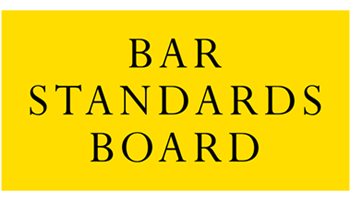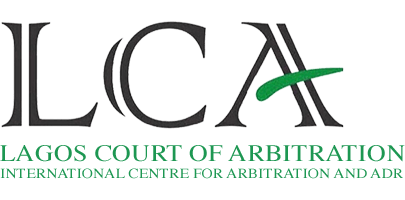UK Tribunal & Dispute Resolution
Our team are regularly instructed on complex multi-day cases for both respondents and claimants. They are experienced tribunal advocates and recognised in the top Legal 500 and featured within Chambers and Partners for employment law expertise.
Employment disputes are best dealt with pragmatically and appropriately. It is always in the best interest of both parties to try and resolve the dispute as quickly as possible, especially if both parties wish to continue their relationship in the future.
Our team of specialists will often help you deal proactively with employment disputes before getting to an employment tribunal claim. However, if this proves impossible, we will provide pragmatic professional advice throughout any claim brought against you as an employer.
It is always initially best to try and deal with workplace disputes informally, reducing your business's financial and emotional cost. Like many workplace problems, when it comes to conflict management, preventing the issue from escalating is better than a cure. Mediation is also an essential aspect of our work. It is an inexpensive and less stressful alternative to Tribunals, and often the working relationship is salvaged through simply negotiating and talking about the issues with an independent third party.
Employment disputes are best dealt with pragmatically and appropriately. It is always in the best interest of both parties to try and resolve the dispute as quickly as possible, especially if both parties wish to continue their relationship in the future.
Our team of specialists will often help you deal proactively with employment disputes before getting to an employment tribunal claim. However, if this proves impossible, we will provide pragmatic professional advice throughout any claim brought against you as an employer.
It is always initially best to try and deal with workplace disputes informally, reducing your business's financial and emotional cost. Like many workplace problems, when it comes to conflict management, preventing the issue from escalating is better than a cure. Mediation is also an essential aspect of our work. It is an inexpensive and less stressful alternative to Tribunals, and often the working relationship is salvaged through simply negotiating and talking about the issues with an independent third party.
WHAT IS MEDIATION?
This is where a neutral third party will facilitate discussions between both parties to find an agreeable outcome.
Both parties exchange a case summary along with any other supporting documents. It is also advisable to send the case summaries to the mediator prior to the initial meeting to ensure the mediator is fully aware what needs to be discussed.
During the meeting the mediator lays out the ground rules and each party then make an introduction outlining their issues.
Further private meetings are held with the mediator where each party can discuss their situation. After several meetings the mediator will try to get both parties to compromise and agree a solution.
If a compromise is met, then an agreement is drawn up for both parties to sign the legally binding document.
If a compromise cannot be met, then both parties have an option to proceed to either arbitration or litigation where a final decision is made by a Judge
WHAT IS ARBITRATION?
Arbitration is when an appointed outsider (with experience or a background in the area of the dispute) will make the final decision based on the evidence presented. Both parties must agree to arbitration.
The arbitrator chosen must be agreed by both parties. However, if no agreement can be reached the Institute of Arbitrators can appoint one on your behalf.
Arbitration is a confidential and neutral process, whereby neither party can gain any advantage over the other. The arbitral tribunal decision is final.
WHAT IS ARBITRATION?
Arbitration is when an appointed outsider (with experience or a background in the area of the dispute) will make the final decision based on the evidence presented. Both parties must agree to arbitration.
The arbitrator chosen must be agreed by both parties. However, if no agreement can be reached the Institute of Arbitrators can appoint one on your behalf.
Arbitration is a confidential and neutral process, whereby neither party can gain any advantage over the other. The arbitral tribunal decision is final.
WHAT IS CONCILLIATION?
Conciliation is like mediation. Conciliation can be used in employer and employee disputes rather than commercial disputes.
Conciliation can avoid the need to attend a tribunal. If the claim has already been submitted to the tribunal, conciliation can still be used to resolve the issue before attending any tribunal hearing.
WHAT IS COURT LITIGATION?
Court litigation is where action is taken through the courts. A judge listens to the dispute and arguments and applies the relevant law to make a decision based on the evidence heard.
The judge has very little flexibility to consider fairness and compromise and will only take into account the law as it stands.
WHAT IS CONCILLIATION?
Conciliation is like mediation. Conciliation can be used in employer and employee disputes rather than commercial disputes.
Conciliation can avoid the need to attend a tribunal. If the claim has already been submitted to the tribunal, conciliation can still be used to resolve the issue before attending any tribunal hearing.
WHAT IS COURT LITIGATION?
Court litigation is where action is taken through the courts. A judge listens to the dispute and arguments and applies the relevant law to make a decision based on the evidence heard.
The judge has very little flexibility to consider fairness and compromise and will only take into account the law as it stands.
GET IN TOUCH TODAY
To learn more about how Williams Allan can support you if you need to resolve an employment dispute,
please contact our expert tribunal claim lawyers below.
Tribunal and Dispute Form
We will get back to you as soon as possible
Please try again later







